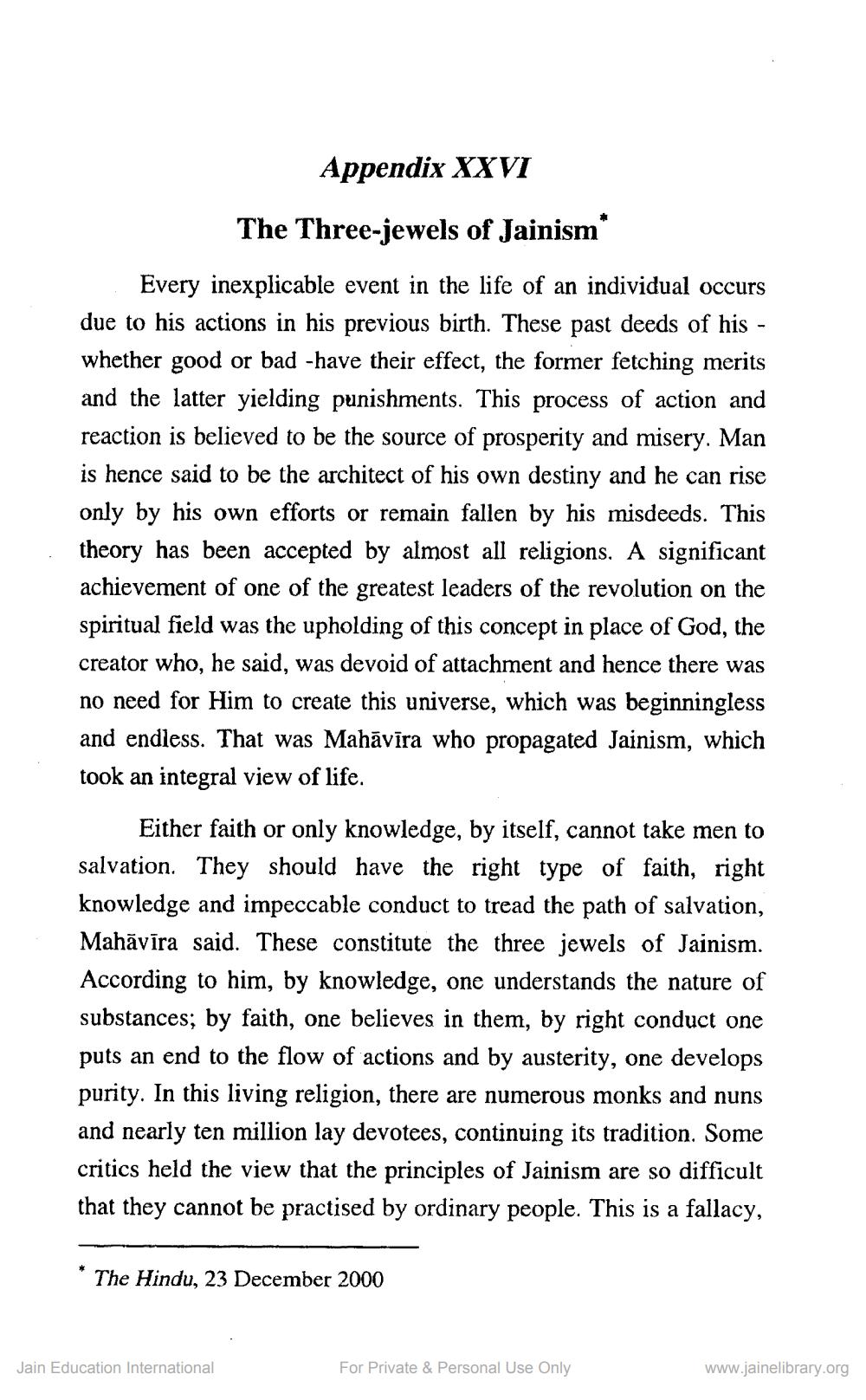________________
Appendix XXVI
The Three-jewels of Jainism"
Every inexplicable event in the life of an individual occurs due to his actions in his previous birth. These past deeds of his - whether good or bad - have their effect, the former fetching merits and the latter yielding punishments. This process of action and reaction is believed to be the source of prosperity and misery. Man is hence said to be the architect of his own destiny and he can rise only by his own efforts or remain fallen by his misdeeds. This theory has been accepted by almost all religions. A significant achievement of one of the greatest leaders of the revolution on the spiritual field was the upholding of this concept in place of God, the creator who, he said, was devoid of attachment and hence there was no need for Him to create this universe, which was beginningless and endless. That was Mahāvīra who propagated Jainism, which took an integral view of life.
Either faith or only knowledge, by itself, cannot take men to salvation. They should have the right type of faith, right knowledge and impeccable conduct to tread the path of salvation, Mahāvīra said. These constitute the three jewels of Jainism. According to him, by knowledge, one understands the nature of substances; by faith, one believes in them, by right conduct one puts an end to the flow of actions and by austerity, one develops purity. In this living religion, there are numerous monks and nuns and nearly ten million lay devotees, continuing its tradition. Some critics held the view that the principles of Jainism are so difficult that they cannot be practised by ordinary people. This is a fallacy,
* The Hindu, 23 December 2000
Jain Education International
For Private & Personal Use Only
www.jainelibrary.org




